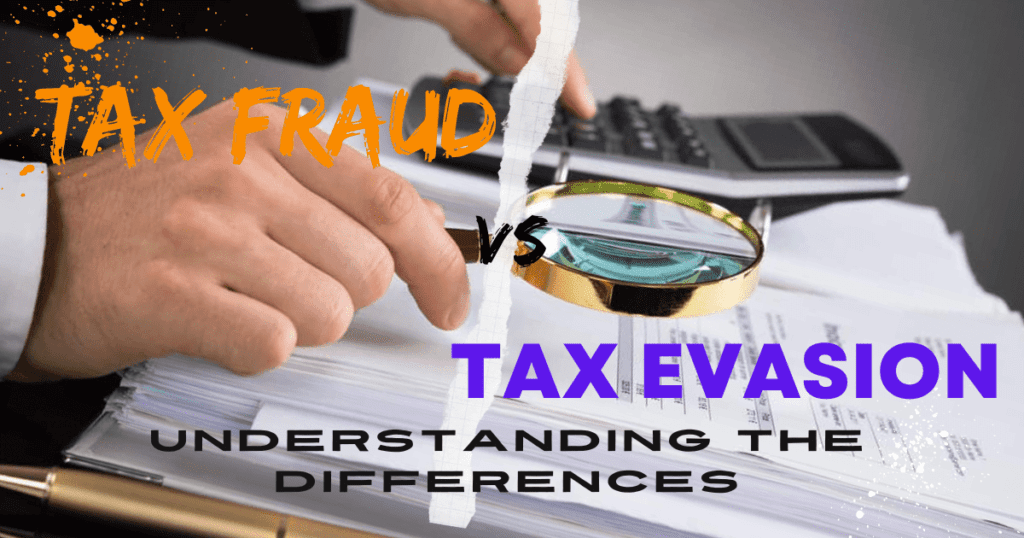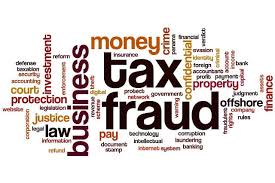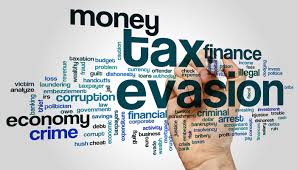When it comes to matters of taxation, the distinctions between tax fraud and tax evasion hold paramount importance. Upholding our civic responsibilities entails the accurate and punctual filing of tax returns and prompt payment of taxes. Nevertheless, instances arise wherein individuals or enterprises endeavor to sidestep tax obligations through tax evasion or tax fraud. These infractions, though both illegal, encompass distinct varieties of tax transgressions.
In this article, we will explore the differences between tax fraud and tax evasion, and what are the different things you need to know to stay compliant with the law.
When we talk about taxes, it is crucial to stay on the right side of the law. But it is unfortunate that everyone does not follow the right way and the consequences of tax fraud or tax evasion can be very severe. Both are illegal acts, but they differ in important ways.
Identifying Tax Fraud
Tax fraud constitutes the deliberate manipulation of information on tax returns with the intention of evading tax payments. This malevolent act may be perpetrated by individuals, businesses, or organizations, manifesting when an individual or entity knowingly circumvents their lawful duty to remit income taxes. In simpler terms, it entails a conscious and willful act of deceit in matters of taxation. Tax fraud is deemed a criminal offense, subject to legal repercussions.
Categories of Tax Fraud
Several classifications of tax fraud include:
- Underreporting Income: Neglecting to declare all sources of income earned, encompassing tips, rental proceeds, or cash earnings, exemplifies a prevalent form of tax fraud.
- Exaggerated Deductions: Purporting inflated deductions or expenditures that lack legitimacy constitutes another form of tax fraud.
- False Documentation: The presentation of fictitious information or documents, such as counterfeit receipts or invoices, represents yet another means of engaging in tax fraud.
- Asset Concealment: The clandestine concealment of assets, such as offshore bank accounts or properties, aimed at eluding tax obligations, equally qualifies as tax fraud.
Instances of Tax Fraud
Illustrations of tax fraud encompass:
- Fabricating Tax Returns: Fabricating tax returns to claim unjustified deductions serves as an instance of tax fraud.
- Underreporting Income: Supressing earned income to diminish the tax liability stands as another case of tax fraud.
- Omission of Earnings: Failing to report the entirety of income garnered from a business or rental real estate typifies tax fraud.
- Mischaracterizing Expenses: Misrepresenting personal expenditures as business-related costs in tax returns constitute a form of tax fraud
- Hiding Offshore Holdings: Concealing assets within offshore bank accounts or trusts with the aim of evading taxes is a practice of tax fraud.
Unlocking Tax Evasion
Tax evasion presents an alternative form of tax violation, wherein taxpayers deliberately evade paying their owed taxes through the concealment or underreporting of income, involving illicit methods. Unlike tax fraud, tax evasion is regarded as a civil offense rather than a criminal one.
Varieties of Tax Evasion
Various manifestations of tax evasion vis-à-vis federal tax authorities are:
- Failure to File: Neglecting to submit a tax return when mandated by law stands as a prevalent manifestation of tax evasion.
- Defaulting Payment: Dereliction in the prompt and complete settlement of owed taxes constitutes another form of tax evasion.
- Understated Income: Underreporting income derived from employment or business pursuits epitomizes yet another form of tax evasion.
- Asset Concealment: The act of hiding assets to elude tax obligations serves as an additional form of tax evasion.
Exemplars of Tax Evasion
Instances of tax evasion encompass:
- Incomplete Income Reporting: Neglecting to declare all earnings stemming from employment or business pursuits.
- Delayed or Nonexistent Filing: Failing to submit a tax return within the stipulated timeframe, or omitting to file altogether, constitutes tax evasion.
- Lax Tax Payment: Defaulting on timely and full tax payments, leading to tax evasion consequences.
- Concealed Assets: Concealing assets to evade tax responsibilities is yet another expression of tax evasion.
Tax Fraud and Tax Evasion –Key Differences
A key divergence between tax fraud and tax evasion lies in their legal classification. Tax fraud qualifies as a criminal offense, whereas tax evasion assumes the character of a civil offense. Tax fraud involves willfully distorting information on tax returns to elude tax payments. In contrast, tax evasion encompasses the deliberate avoidance of tax obligations by omitting income or concealing assets.
Intent Disparity
A secondary distinguishing factor pertains to the level of intent involved. Tax fraud necessitates a deliberate and conscious effort to mislead tax authorities, whereas tax evasion can transpire inadvertently, such as through ignorance or oversight. For instance, if a taxpayer unintentionally fails to declare income, this qualifies as tax evasion rather than tax fraud.
Consequences for Transgressions
Both tax fraud and tax evasion yield severe repercussions, encompassing fines, imprisonment, and asset confiscation. Given the criminal nature of tax fraud, penalties tend to be more severe in comparison. Penalties for tax fraud can span from fines reaching up to $250,000, to imprisonment extending for a maximum of five years, contingent on the severity of the offense. Alongside criminal penalties, taxpayers may also incur civil penalties, coupled with the requirement to settle overdue taxes alongside interest and penalties.
Tax evasion penalties, though generally milder compared to tax fraud, can still result in fines and penalties. For late tax return filing or payment, penalties can escalate up to 5% of the tax debt per month. Additionally, underreporting income may invite penalties of up to 20% of the tax underpayment.
Safeguarding Against Tax Fraud and Tax Evasion
The optimal approach to avoiding tax fraud and tax evasion entails forthrightness and precision in tax return submissions. Ensuring the accurate declaration of all earned income, coupled with legitimate deductions and expenditures, constitutes a pivotal strategy. A scrupulous record-keeping practice, encompassing receipts and documentation, substantiates one’s tax claims.
For individuals uncertain about specific aspects of their tax return, engaging the expertise of a qualified tax professional is advised. Such professionals are equipped to navigate intricate tax laws, offering guidance to ensure compliance with tax mandates.
Implications of Tax Fraud and Tax Evasion
The repercussions ensuing from tax fraud and tax evasion are both formidable and enduring. Offenders encounter not only fines and imprisonment but also potential tarnishing of their reputation and credit rating. Furthermore, those who engage in these infractions may attract prolonged attention from the IRS, potentially leading to heightened scrutiny, audits, and investigations.
The Significance of Professional Tax Assistance
Retaining the services of a tax professional holds paramount importance in mitigating the risk of tax fraud and tax evasion. Tax experts possess the acumen to ensure the precision and conformity of tax returns with prevailing tax regulations. Beyond that, they can identify potential red flags that might trigger an audit, while maximizing eligible tax deductions and minimizing tax liabilities.
Conclusion
Tax fraud and tax evasion constitute serious transgressions within the realm of taxation, with consequences spanning fines, imprisonment, and asset forfeiture. Despite their shared illegal status, these infractions diverge significantly in their nature and gravity. Tax fraud revolves around the deliberate provision of false tax-related information, while tax evasion pertains to the act of evading tax obligations by under-report.
FAQs
Q1. Is fraud the same as evasion?
Ans: Fraud, in its essence, entails purposefully deceiving others to achieve personal gain or inflict financial loss. Within legal frameworks, it involves intentional misrepresentation, concealing information, or employing misleading actions. Tax evasion, on the other hand, is a more specific transgression that revolves around unlawfully circumventing tax payments through misrepresenting or obscuring income and assets. While both actions encompass deceit, fraud covers a broader array of deceptive practices, while tax evasion zeros in on the act of evading taxes.
Q2. What type of crime is fraud and tax evasion?
Ans: Fraud, a prime example of a white-collar crime, revolves around deceitful tactics aimed at achieving financial benefits. This encompasses a range of activities, including securities fraud, credit card fraud, and identity theft. Tax evasion, in contrast, is a specialized form of financial misconduct that entails the illicit avoidance of fulfilling tax obligations owed to the government. Perpetrators of both fraud and tax evasion can face criminal charges, monetary fines, and various legal consequences.
Q3. What is tax evasion and fraud in accounting?
Ans: In the realm of accounting, tax evasion denotes the deliberate manipulation or misrepresentation of financial data to lower taxable income, ultimately sidestepping tax payments. This might encompass inflating expenses, underreporting earnings, or maintaining fabricated records. On the other hand, fraud in accounting casts a wider net, encompassing an array of deceitful maneuvers within financial reporting. This can involve distorting financial statements, embezzlement, and manipulating records to achieve personal gains.
Q4. What is the difference between tax fraud and tax negligence?
Ans: Tax fraud entails calculated and intentional efforts to deceive tax authorities, such as furnishing false information or suppressing income to evade taxes. It constitutes a deliberate breach of tax regulations. Tax negligence, in contrast, denotes a lapse in exercising reasonable care while fulfilling tax obligations. It arises from inadvertent mistakes or omissions on tax returns, culminating in inadequate tax payments. While tax fraud springs from a deliberate intent to mislead, tax negligence arises from a lack of diligence or precision.
Q5. What is the term tax fraud?
Ans: Tax fraud encapsulates the illicit act of willfully furnishing false details on tax returns with the aim of evading legally owed taxes. This involves purposeful deception, falsification, or withholding of financial information to manipulate the tax liability or claim excessive refunds. The repercussions of tax fraud are grave, encompassing potential criminal prosecution, substantial financial penalties, and even the specter of imprisonment.
You may also like:



Really informative article 👏🏻